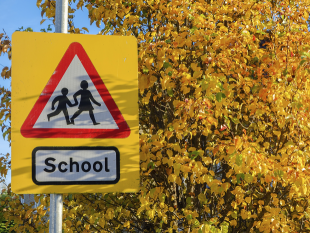
Here we look at some common questions and answers about Free School Meals (FSM), school meal provision during the Covid-19 pandemic, and what the government is doing to end child poverty and holiday hunger.
Why are Free School Meals (FSM) not being extended to cover the October half term?
Free school meals are intended as additional support to low income families during the school term. They ensure the most disadvantaged children in society receive a free and nutritious meal each day that they are in school, helping them to concentrate, learn and achieve.
During the unprecedented time at the start of this pandemic, it was right that extra measures were taken to support low income families. The boundaries between education and home blurred – with schools providing meals for eligible pupils whilst they learnt from home and so we temporarily extended Free School Meals over the school holidays.
But we are now in a different position with our schools back open to all pupils. Of course, schools play an integral role in their communities, but it is not for schools to regularly provide food for pupils during the school holidays.
We believe that the best way to support families outside of term time is through Universal Credit. We have made urgent advances available so no one has to wait five weeks for a payment. In response to the pandemic, we have also introduced income protection schemes, mortgage holidays and additional support for renters.
We have increased the safety net for those most in need. We are committed to supporting the lowest-paid families, and has taken significant steps to do so, including raising the living wage, ending the benefit freeze and increasing work incentives.
Why can’t you extend the voucher scheme?
The national voucher scheme closed in July and is no longer in operation and was only ever intended to be a temporary measure.
Taken together with the Covid Summer Food Fund, more than £380 million worth of voucher codes were redeemed into supermarket gift cards by families and schools between March and August while schools were closed to most pupils.
What happens if schools close due to cases of Covid-19 – how are children still accessing free school meals?
School catering providers have resumed providing food to all pupils who want it, including those eligible for free school meals. For any eligible pupils who are self-isolating or who need to be at home due to Covid-19, we expect schools to provide via food parcels, should the need arise. More guidance on providing school meals during the coronavirus outbreak is available here.
How do I check if I am eligible for free school meals?
To check if your child may be eligible for free school meals (FSM), the eligibility criteria can be found here.
If you have recently become eligible for FSM, we advise you to contact your child’s school in order to confirm eligibility.
For families facing hardship, further government support is available for families struggling as a result of coronavirus (COVID-19). If families need urgent help, they can contact their local council to find out what services are available in their area.
I am a parent who cannot afford meals for my family during the school holiday – what should I do?
Anyone experiencing hardship should contact their Local Authority for advice on local support schemes for those who cannot afford food and other essential supplies.
For those most in need, the Government has introduced measures worth an estimated £9bn this financial year, including, increases to Universal Credit and Working Tax Credit of up to £1,040 a year and increases to Local Housing Allowance rates worth an average of £600. These are in addition to income protection schemes, mortgage holidays and additional support for renters.
For more information on Universal Credit please visit www.understandinguniversalcredit.gov.uk or to learn more about the benefits you can claim alongside Universal Credit, please visit www.gov.uk/universal-credit/other-financial-support.
You can contact the Universal Credit helpline on 0800 328 5644.
Where can schools go for advice for their families?
Individuals can speak to a Universal Credit work coach, which can be accessed through a local Jobcentre.
Anyone experiencing hardship should contact their Local Authority for advice on local support schemes for those who cannot afford food and other essential supplies.
What is the government doing more broadly to end child poverty and holiday hunger?
Our £9 million Holiday Activities and Food programme supported up to 50,000 disadvantaged children across 17 local authority areas over the summer holidays, providing free healthy meals and enriching activities. We also extended our successful Breakfast Club programme over the summer holidays.
We have taken substantial action to make sure children and families do not go hungry by extending free school meals when schools closed, increasing welfare support by £9.3bn, and giving councils £63 million to provide emergency support to families for food and other essentials.
This government is committed to supporting the lowest-paid families, and has taken significant steps to do so, including raising the living wage, ending the benefit freeze and increasing work incentives.